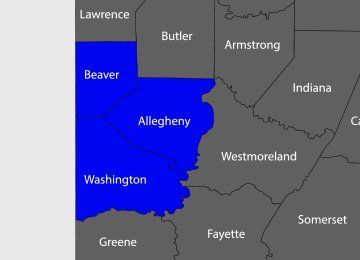Beverly Services Frequently Asked Questions
24/7 Emergency Service
Same Day Service
Financing Available
100% Satisfaction Guarenteed
Financing Available | 24/7 Emergency Service | Same-Day Service | 100% Satisfaction Guaranteed
Learn More About Beverly Services
Have an HVAC-related question? We have the answer. Check out these FAQs and give us a call today for more information!
-
Do air conditioners dehumidify?
Yes, every air conditioner will dehumidify a home to some extent. Some equipment can enhance this process by manipulating fan speeds and staging the compressor or the air conditioner. Dehumidification is part of the cooling process.
-
What causes an air conditioner to freeze up?
Ice or freezing in the unit can be caused by a clogged drain, a dirty filter, dirty or clogged coil, low refrigerant, blocked vents, or a defective indoor fan motor.
-
Why is my air conditioner leaking water?
One culprit could be a clogged or partially clogged water drain that comes from the indoor air conditioner coil. Since an air conditioner's primary job is to remove moisture from the home, a dirty drain could cause a leak. Other times, leaking water comes from ice formed by a dirty filter, dirty indoor coil, blocked vents, low refrigerant or a defective indoor fan motor. Any of these can cause ice to build up on the indoor coil, and water to drip on the floor inside the furnace or heat pump fan coil unit.
-
How many BTUs do I need for an air conditioner to cool my home?
Air conditioning systems are designed for a 95 degree day and how many BTUs it will take to cool the home at the 95 degree outdoor temperature. Older air conditioner models always operate at 100% capacity, meaning that they deliver all the cooling they are capable of and use 100% of the electricity to do that, every time it turns on. When the temperature is only 70, 80, or 90 degrees, that extra capacity is wasted. Newer models are able to stage the equipment to deliver only the amount of cooling the home needs, saving you money on your electric bill.
-
What is a ton of cooling?
One ton of cooling equals 12,000 cooling BTUs per hour. BTU is short for the British Thermal Unit, which is a measure of heat in units of energy. It is the amount of heat required to raise the temperature of one pound of water one degree Fahrenheit. 12,000 BTUs per hour is the rate of heat transfer it takes to melt one ton of ice at 32 degrees Fahrenheit in 24 hours. Thus, a three ton unit would be (3 x 12,000 BTU/hr) or 36,000 BTUs. An air conditioner takes the heat that is inside the home and moves it outside the home through the medium of refrigerant.
-
Should I cover my outdoor air conditioning unit during the winter?
Covering the outdoor unit is not always necessary. The units are made to withstand the weather. If you have a unit under or near a tree, it is a good idea to cover the unit to keep debris from building up inside the unit during the off season. Never cover the unit completely. The cover should allow the unit some air flow at the bottom so as not to trap moisture inside. Some customers will put a piece of plywood on top of the unit. This will help to protect the unit against damage from falling ice and help keep rodents from entering your unit. Make sure any cover is removed before the start of operations the following spring.
-
What is the difference between SEER and SEER2?
SEER stands for Seasonal Energy Efficiency Ratio or “Rating.” This is the ratio of the cooling output of an air conditioner and heat pump over a typical cooling season, divided by the energy it uses in Watt-Hours. SEER2 is an updated version of this calculation that uses the new M1 blower testing procedure. The higher the SEER or SEER2 rating of an air conditioner or heat pump, the less it will cost you to operate.
-
On my thermostat, what setting should my fan be on?
The “automatic” setting means the fan’s cycle will be controlled by the temperature in the room. However, if your home is equipped with an air cleaner, or you may wish to keep a continuous flow of air. This is done by switching the setting to “on.” Central air cleaning devices only work when the furnace is circulating air, so if you wish to get the most from your air cleaner, you should keep the setting to “on.” Setting the fan to “on” will also keep a more even temperature within the home.
-
What is an AFUE rating?
Furnaces are rated by the Annual Fuel Utilization Efficiency (AFUE) ratio, which is the percent of heat produced for every dollar of fuel consumed. Like the miles-per-gallon rating on your automobile, the higher the AFUE rating, the lower your fuel costs.
-
How often should I have my furnace cleaned and serviced?
Your furnace should be cleaned and serviced once per year, this goes for your air conditioner as well. A cleaning means that your furnace will operate more efficiently, and thus, cost effectively. The cleaning also includes a thorough safety check of the entire unit for cracked, defective or damaged parts; if certain parts are damaged, carbon monoxide could be leaking into your home without you even knowing it.
-
How often should I change the standard filter on my furnace?
You should change your standard furnace filter every 6–8 weeks. Use your own judgment as to when to change it, but don’t let the filter get clogged, as this can cut down on the efficiency and/or cause damage to the unit.
-
How often should I replace my HVAC air filters?
Standard fiberglass air filters should be replaced every six to eight weeks. This is vitally important to the performance of your HVAC systems and your indoor air quality. If you're in need of AC services, don't hesitate to contact Beverly Services today!
-
What is a ductless mini-split system?
A ductless mini-split system is an alternative to a traditional heating and cooling system with ductwork. Ductless HVAC works similarly to central heating and cooling, except that it doesn’t require ductwork. Your mini-split system will have an indoor and outdoor unit, but it will only require a small hole to be cut through the exterior wall — just big enough for a tube of refrigerant to pass through. Inside your home, the air will be conditioned and returned to the room by the same unit. Contact Beverly Solutions today if you need AC services.
-
What is dual-zone air conditioning?
A dual-zone air conditioning system is a network of thermostats and duct dampers that regulates the amount of cooled air each zone (one or more rooms) receives throughout the day. Zoning technology allows homeowners to cool only the occupied areas of living space at any given time or to set different temperatures in different areas of the home. For air conditioning electricians you can rely on, contact Beverly Solutions today.
-
What simple air conditioning/furnace maintenance and troubleshooting can I do myself?
Check the Air Filter in Your Furnace or Fan Coil Every Three to Four Weeks:
A dirty filter will cause excessive strain on your furnace, air conditioner, or heat pump. Replace your filter when necessary, or clean it if you have the reusable type. (If you have a reusable filter, make sure it’s completely dry before you re-install it.) The prefilter and collection cells of an electronic air cleaner should be cleaned at least two or three times per year.
Keep Your Outdoor Condensing Unit Free of Debris:
If you keep grass clippings, leaves, shrubbery, and debris away from your outdoor unit, it should only require minimal care to operate properly. Check the base pan (under the unit) occasionally and remove debris, to help the unit drain correctly.
If the outdoor coil becomes dirty, use a brush or a vacuum cleaner with a soft brush attachment to clean the surface. To clean dirt that is deep in the coil, contact your dealer for assistance with AC services.
Take Special Care of Outdoor Condensing Units in Ocean Environments:
If your unit is located near a sea coast, you can help preserve its optimal condition with a little extra care. Ocean mist and sea breezes carry salt, which is corrosive to most metals. Although new Carrier units are made out of galvanized metal and are protected by top-grade paint, you can add life to your unit by washing all exposed surfaces and the coil approximately every three months. (Ask your installing contractor about the appropriate interval in your area.)
Make Sure Your Outdoor Unit Stays in a Level Position:
If the support for your split-system outdoor unit shifts or settles and the unit is no longer level, re-level it promptly to make sure moisture drains properly out of the unit. If you notice that water or ice collects beneath the unit, arrange for it to be drained away from the equipment.
Inspect Your Furnace's Combustion Area and Vent System Before Each Heating Season:
If you find dirt, soot, or rust, your system may not operate properly or at its peak efficiency. Call your servicing dealer and do not operate your furnace until it is professionally inspected and/or repaired.
Have Oil-Fired Boilers Inspected Annually:
Call your servicing dealer before each heating season to replace your oil filter cartridge and conduct a thorough inspection of the unit's operation.
Clean Your Humidifier at the Beginning of Every Heating Season:
Review your owner's manual for the proper procedure to clean the external and internal components of your unit. The evaporator pad should also be replaced before each heating season. If the water in your area is hard or has high mineral content, you may need to clean or service your humidifier more frequently.
-
When should I call a plumber?
This really depends upon your skill level and repair experience. Also, do you have the proper tool and know how to use them safely? There is also the potential for water damage if something goes wrong. If you are really not sure if it is best to let a professional handle the issue. Some of the most common situations where our customers request a plumber’s help are: water leaking through ceilings, no hot water, clogged drains, a faucet that won’t turn off, higher than normal water bills, water in the basement, noisy pipes, frozen pipes, and backed up sewers.
-
Can a plumber fix frozen pipes?
If the pipes have frozen and burst, a plumber can fix them. If the pipes are frozen but have not burst, a plumber can remedy them by applying a heat gun to thaw them. For an interim solution, a homeowner could use a hair dryer to start the thawing process. A plumber’s main role and concern in this situation is to identify and fix the problem that caused the pipes to freeze. Contact our plumbers today at Beverly Solutions for assistance with frozen pipes.
-
Can a plumber fix my water pressure?
Plumbers know many different ways to increase water pressure. In 95% of cases, we can supply solutions to increase water pressure in a home to acceptable levels. Plumbers can also fix high-pressure situations, which can cause serious damage to a home’s entire plumbing system. Contact Beverly Solutions today for more information.
-
Why should I be worried about my air indoors?
We spend 90% of our time indoors. Today’s efficient, airtight homes are excellent at conserving energy, but that also makes them better at trapping potentially irritating particles inside the home. With the rising number of people who suffer from allergies and asthma, indoor air quality services have become more and more important to promote our general health and well-being. Chemicals in laundry detergents, aerosols, cleaning products, new carpeting and other products can really contaminate the air within our homes. A wide range of particulate matter can be in your home’s air, including dust, pollen, animal hair and dander, dust mites, mold spores, cooking grease, smoke, bacteria, viruses and other respiratory diseases. Studies have shown that indoor air can be as much.
-
I keep a clean house. Do I need an air cleaner?
Yes. The average home generates 40 pounds of dust for every 1500 square feet of space. While regular home cleaning is an excellent measure to reduce exposure to irritants and pollutants, it is simply impossible to remove enough of the material by hand to make your home’s air as healthy as it can be.
-
How does a whole house air cleaner work?
Whole-house air cleaners are designed to fit perfectly within your central furnace and air conditioning system. Unlike many air cleaners that are situated in a single room of the house, a whole house air cleaner is installed directly into your ductwork and works in conjunction with your heating and cooling system. It operates out of sight of most living spaces and provides up to 99.98% cleaner air throughout your entire home. Air purifiers can also be installed that way and can provide even more protection.
-
Where is my filter located?
Your air filter should be located in either the blower compartment of the furnace, in an attached filter rack/case, or in a return air grille in a wall or ceiling of your home. If you cannot find the air filter, or if you need to purchase filters, contact Beverly Services for assistance.
-
How often should I change or clean my filters?
The standard hardware store type fiberglass filters should be replaced every six weeks when the system is running. Replace filters with the same kind and size as the original filter. If your filter is not disposable, follow the manufacturer's instructions for cleaning. Failure to clean or replace the filter can negatively affect the performance and life of your equipment, as well as your indoor air quality. Dirty filters can also void the manufacturer’s warranty on your furnace and air conditioner.
-
How often should I get my ducts cleaned?
Air ducts, like any other HVAC system, require regular cleaning to ensure maximum efficiency. The National Air Duct Cleaners Association (NADCA) recommends air duct cleaning every three to five years. However, it really depends on your lifestyle. For example, if you have pets and or smokers in your home, or if you have allergies, it may prove beneficial to get them cleaned more often.
Quick Links
serving Area

Corporate Headquarters
Pennsylvania Home Improvement Contractor License: PA7606
Financing Available (subject to credit approval)
Business Hours
All Rights Reserved | Beverly Services | Privacy Policy







Share On: